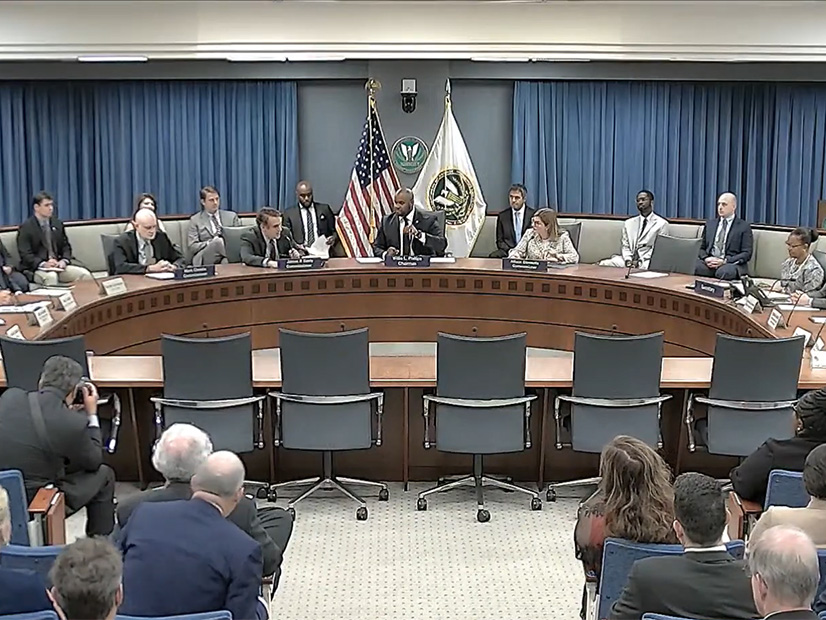FERC on Thursday approved two new rules intended to strengthen the grid against extreme weather events.
The commission ordered NERC to either update reliability standard TPL-001-5.1 (transmission system planning performance requirements) or create a new rule that would require responsible entities to plan specifically for both extreme heat and cold weather events (RM22-10). Either way, entities will be required to create a corrective action plan to mitigate any occasions where performance requirements for extreme weather have not been met.
FERC also directed transmission providers to submit a one-time report detailing their policies and processes for conducting extreme weather vulnerability assessments and mitigating identified risks (RM22-16, AD21-13).
Based on the staff’s presentation at FERC’s monthly open meeting in Washington, D.C., the commission made only minor alterations from when the rules were first proposed about a year ago. (See FERC Approves Extreme Weather Assessment NOPRs.)
Both rules will take effect 90 days after their publication in the Federal Register, and transmission providers will be required to submit their reports within 120 days of publication. FERC had originally proposed that the reports be due in 90 days. The commission also approved extending the public comment period on the reports to 60 days, from the 30 originally proposed. In doing so, FERC agreed with the Edison Electric Institute and other commenters that the time periods were too short. (See ERO Supports FERC Weather Assessment Proposal.)
According to Alyssa Meyer, an energy industry analyst in FERC’s Office of Energy Policy and Innovation, the final rule also requires transmission providers to include in their reports how they define extreme weather and how RTOs and ISOs account for differences between transmission owner members’ assumptions and results.
“For the first time, reliability standards will require planning for extreme heat and cold weather,” acting FERC Chair Willie Phillips said in a statement. “NERC will develop the standards, and once we approve them, transmission owners and operators will identify the elements of their systems that are vulnerable to extreme heat and cold and develop solutions to address those vulnerabilities.”
Elliott: Different Storm, Same Outages
Before the commission approved the orders, FERC staff presented some preliminary findings of the commission’s joint inquiry with NERC into the December 2022 winter storm, also known as Winter Storm Elliott.
Unplanned generator outages exceeded 70 GW of capacity. The three main causes of the outages, staff said, were mechanical problems, equipment freezing and lack of fuel availability. Natural gas production, processing and shipping was hindered by compressor facility and well outages.
The observations are familiar: They are essentially the same as those in a 2021 technical conference held in the aftermath of a February winter storm (Uri) that nearly led to the collapse of the Texas Interconnection. Thursday’s orders stemmed from that conference.
“We’re seeing the same three causes, so therefore we think that it makes all the sense in the world to continue full steam ahead on implementing prior recommendations” from Uri and other previous severe winter storms, said Heather Polzin, an attorney adviser in FERC’s Office of Enforcement. Those include weatherizing equipment, inspecting facilities before winter and reviewing emergency operations plans.
Phillips said after the presentation, “Let me be clear: I want to join [staff] in encouraging, urging, cajoling all the utilities — every covered entity — to not wait. Implement these recommendations now. Right now. We know, to borrow a phrase, ‘Winter is coming.’”




